Υιοθετημένα και «αναθρεπτά παιδιά». Ο νομικός θεσμός και η πρακτική του εφαρμογή στην κοινωνία της βενετικής Κρήτης
Ενότητα:
Μελέτες Ιστορίας Δικαίου
Τίτλος μελέτης
Υιοθετημένα και «αναθρεπτά παιδιά». Ο νομικός θεσμός και η πρακτική του εφαρμογή στην κοινωνία της βενετικής Κρήτης
Γλώσσα: Ελληνικά, Νέα (1453-)
Τίτλος εντύπου
Επετηρίς του Κέντρου Ερεύνης της Ιστορίας του Ελληνικού Δικαίου
Γλώσσα: Ελληνικά, Νέα (1453-)
Αριθμός τόμου
42
Είδος εντύπου
Επετηρίδα
Έτος έκδοσης
2010
Συγγραφέας/ Εκδότης
Χατζάκης , Ιωάννης
Αριθμός σελίδων
147-180
Γλώσσα
Αγγλικά
Περίληψη
I.Chatzakis: Children adopted and «anathrepta». The legal institution and its practical application in the society of Venetian Crete. Adoption constitutes a practice not particularly widespread in the Venetian world. It concerns actually almost exclusively the engagement of children belonging in particular groups, such as for example the abandoned children. This tendency naturally also influenced decisively the regions conquered by the Republic of Saint Mark. In Crete, the testimonies from published notarial and administrative material of acts of adoption are minimal. On the contrary a substantially widespread use is noted of a parallel, informal institution, that of “anathrepta” children, which however did not produce legal effects. Moreover the social standing, the status, but also the attitude of the adopting family against these children varies and its appears to be influenced from a plurality of factors. The social and economic situation of the family or the bonds of kinship of the children with the adopting parents constitute data that give rise to large internal divergences. The notarial documents and particularly the wills constitute valuable guides in this effort of interpretation of behaviours. In a lot of cases the adopting parents seem to practise powers onto their “anathrepta" children that are similar to those of real parents, agreeing in their nuptial agreements, giving them a dowry and rendering them their heirs. In other cases, especially when the family core also includes legal children, the “anathrepta” children are limited to the granting of mere bequest. It is worth noting that in a third level another category of children, that of foster-children (psychopaidia) is also included in the Cretan family, such children enjoying a yet more relaxed institutional framework of incorporation, thereby being found at an intermediary situation between “anathrepta” children and servants.
Θεματική ενότητα
Μεταβυζαντινό δίκαιο-Αστικό δίκαιο-Οικογενειακό δίκαιο
Μεταβυζαντινό δίκαιο-Αστικό δίκαιο-Κληρονομικό δίκαιο
Creative Commons
Αναφορά Δημιουργού - Μη Εμπορική Χρήση - Παρόμοια Διανομή 4.0 Διεθνές - CC BY-NC-SA

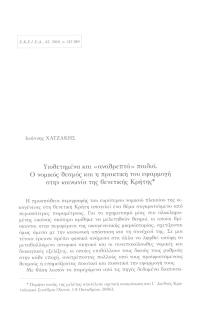
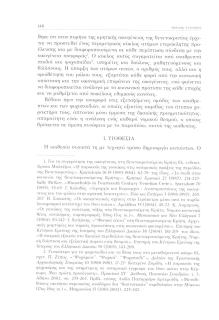
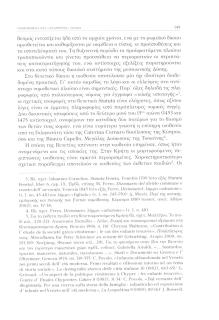
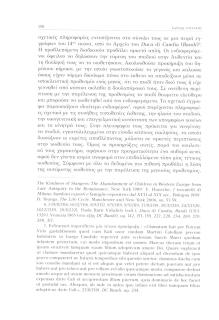
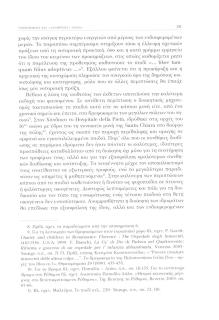
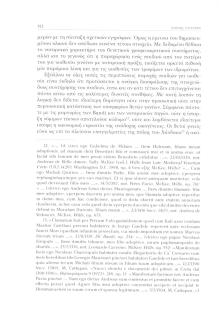
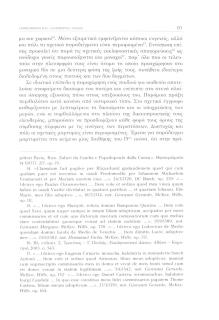
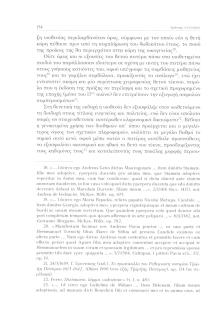
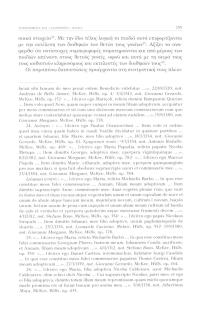
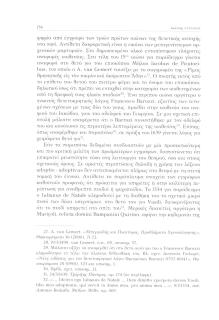
 Look inside pdf
Look inside pdf